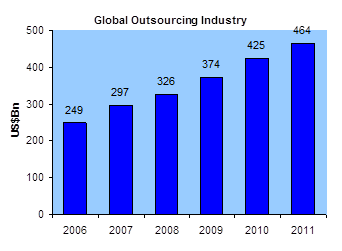
European engineers are spread all over the world, mostly the ones that continued their studies in a foreign country and then managed to obtain positions in international corporations. “While reliable projections are difficult in a field that is evolving so rapidly, it has been estimated that by 2015, US companies will offshore 3.3 million jobs valued at $135 billion a yearâ€, The International Center for Peace and Development states in its “Employment Trends in the 21st Century†research.
“European firms prefer nearshoring to countries in Eastern Europe such as Romania where wages are only 10% of the level in the West. More than 80% of world's top 2000 companies operate significant outsourcing operations overseasâ€, says the research report. So why shouldn’t US companies take on the trend to a next level? I am sure they will continue to outsource their business throughout European countries. Gaining not only cheap labor but also an inside view of how the European market evolves. Evolving technology and the hunger for money will spread knowledge in the most remote places on Earth.
Projections from The International Labour Office in Geneva for unemployment from 2011-2016 indicate that there will be a large untapped pool of skilled talent in Europe for the foreseeable future:
References:
1 – “Employment Trends in the 21st Centuryâ€, The International Center for Peace and Development, www.icpd.org
2. – “Global Employment Trends 2012â€, The International Labour Office in Geneva, http://www.ilo.org
3. – Gartner Worldwide IT Spending Forecast, http://www.gartner.com/technology/research/it-spending-forecast/












 RSS Feed
RSS Feed